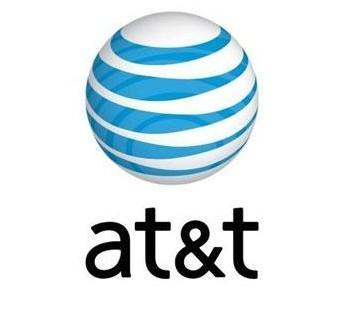
Business American telecoms A breath of fresh airwavesyou want
商业 美国电信 呼吸新鲜的电波
The scramble for spectrum could reshape America's telecoms industry
频谱争夺战可能打开美国电信新局面
JULIUS GENACHOWSKI, the head of America's Federal Communications Commission (FCC), has called wireless spectrum "the oxygen that sustains our mobile devices".
美联邦通讯委员会(FCC)主席JULIUS GENACHOWSKI,将无线通讯频段称为"维持移动通讯设备工作的氧气",
Yet unlike oxygen, the airwaves over which telecoms companies transmit their wireless signals are in ever shorter supply.
但与氧气不同的是,如今电信公司用来传输无线讯号的波段比以往更加短缺。
According to the FCC's calculations, America needs to make 300 megahertz (MHz) of additional spectrum available by 2014 to avoid a "crunch" that drives up consumers' mobile-phone bills and holds back innovation.
据委员会估计,为免移动电话用户账单攀升,创新停滞不前,引发"频谱危机",到2014年美国需要新增300兆赫兹频段投入使用。
Some critics reckon the regulator's projections are too pessimistic.
有的评论家认为委员会的预测太过悲观,
But telecoms firms say an explosion of wireless data triggered by smartphones and tablet computers is indeed soaking up capacity fast. Hence the scramble for more airwaves.
但电信公司指出,由智能机和平板电脑所引发的无线通讯数据的激增,实际上正快速占据频带容量,面向更多频段的争夺进而产生。
On December 2nd Verizon Wireless, the country's largest mobile operator, announced a $3.6 billion deal to buy spectrum from several cable-television companies.
12月2日,美国最大的移动通讯运营商威瑞森无线通讯公司(Verizon Wireless)宣布斥资36亿美金从几家有线电视公司手中收购波段。
AT&T, another telecoms behemoth, has been telling anyone who will listen that its $39 billion bid for T-Mobile USA, a smaller rival, should be approved in part because it would ease a capacity headache: AT&T has plenty of capital but needs more spectrum, while T-Mobile has the airwaves but lacks the capital to exploit them fully.
另一家电信巨头AT&T也正试图让每一个关心的人相信,它对T-Mobile USA这个小公司的价值390亿的收购企划应得以通过,部分原因是如此可缓和波段紧缺的困难:AT&T有足够的资金但需要更大的带宽,然而T-Mobile 有带宽却缺少充分开发利用的资金。
The snag is that allowing AT&T and T-Mobile to merge would stifle competition in the wireless market—which is why both the Department of Justice and the FCC oppose it.
问题在于,若允许AT&T 和T-Mobile合并,就会破坏无线市场的竞争公平——这就是为什么司法部和联邦通讯委员会都反对它们合并。
AT&T and Deutsche Telekom, T-Mobile's German parent, have pledged to fight on, but the merger's chances are slim.
AT&T 和 T-Mobile 的母公司德国电信(Deutsche Telekom)已承诺会继续争取,但合并的希望渺茫。
Verizon's deal, by contrast, will probably be cleared by the FCC, which must approve transfers of licensed spectrum.
相反,委员会却极有可能会同意Verizon的交易,因为它没有权力阻止已得到使用许可的波段的易主。
Could more wireless capacity be liberated from other businesses that do not need it?
可以从其他行业释放出更多的无线通讯空间吗?
The FCC thinks so.
它们并不需要那么多。
It has come up with a proposal to persuade TV companies to part with some of their airwaves.
联邦通讯委员会觉得可行,它已起草一项提案建议说服电视公司出让它们的部分波段。
It would solicit spectrum from broadcasters and then repackage it into larger lots to be sold in an auction. The revenue raised would be shared between the government and the broadcasters.
委员会将设法从电视台买来波段,然后将之重新包装合并,进行拍卖,筹集的收入由政府和电视台分成。
The FCC thinks this could release up to 120MHz of TV broadcast spectrum.
委员会认为如此可释放多达120MHz的电视广播频段。
TV companies could instead sell their holdings to telecoms companies directly.
实际上,电视台也可以直接向电信公司出售频段,但转手的很可能是许多短小细碎的波段。
But this would probably mean lots of tiny, fragmented packets of airwaves changing hands. Wireless operators will pay more for large, contiguous parcels of spectrum, which is why the FCC wants to orchestrate the process.
为购买大容量连续带宽无线运营公司将需要付出更多金钱,这也正是联邦通讯委员会想要精心策划这项进程的原因。
Legislation to give it permission to do so is making its way through Congress. It may be passed by the end of the year.
为使委员会具有操作权限,相关法规正在议会进行审核。这项法规大概会在年底之前可以通过。
But some broadcasters have given warning that the plan could hurt some stations.
但是一些广播公司提出警告,这项计划可能会伤害某些电视台的利益。
"We're concerned this will have unintended consequences," says Alan Frank, the chief executive of Post-Newsweek Stations, which has operations in Detroit, San Antonio and other cities.
Alan Frank是Post-Newsweek 电视台的首席执行官,该台在底特律,圣安东尼奥及其他城市均设有业务,他说:"我们担心这项举措会产生意想不到的后果"。
TV folk fret that the FCC wants to be able to force stations to swap channels if necessary, even if they do not take part in the auction, so that it can create attractive parcels.
电视工作者担心委员会拟定法案是想在必要的时候迫使他们转换频道,以便构成更可观的波段组合,即使这些频道并没有参与拍卖。
This will raise their costs and could lead to the disappearance of some stations in cities near the Mexican and Canadian borders, where TV spectrum is already limited.
这种做法会提高电视台的运营成本,同时可能导致临近墨西哥、加拿大的边境城市里的部分电视台消失,因为在那里频带资源本就很有限。
Such concerns can be dealt with.
这样的担忧是可以解决的。
Legislators are likely to create a fund to compensate broadcasters who have to move channels. And they will probably require the FCC to try hard to preserve existing TV coverage when it repackages airwaves.
立法者也许会设立一项基金用以补偿那些不得不转换频道的电视广播公司,并且他们很有可能要求联邦通讯委员会在重组波段的时候,尽力保全现存的电视频道覆盖范围。
Congress's enthusiasm to get something done is understandable.
国会热衷于达成一些成就的心理是可以理解的。
For one thing, an auction will raise billions of dollars for the public purse.
一方面,一场拍卖会能为国库筹集到数十亿美元的资金;
For another, it will create jobs by encouraging firms to invest in their networks.
另一方面,通过鼓励公司投资网路可以创造就业机会。
Failure to act would send the wrong signal to one of America's fastest-growing industries.
而若举措不当则将会向这一全美都发展迅猛的产业发送错误的讯息。












